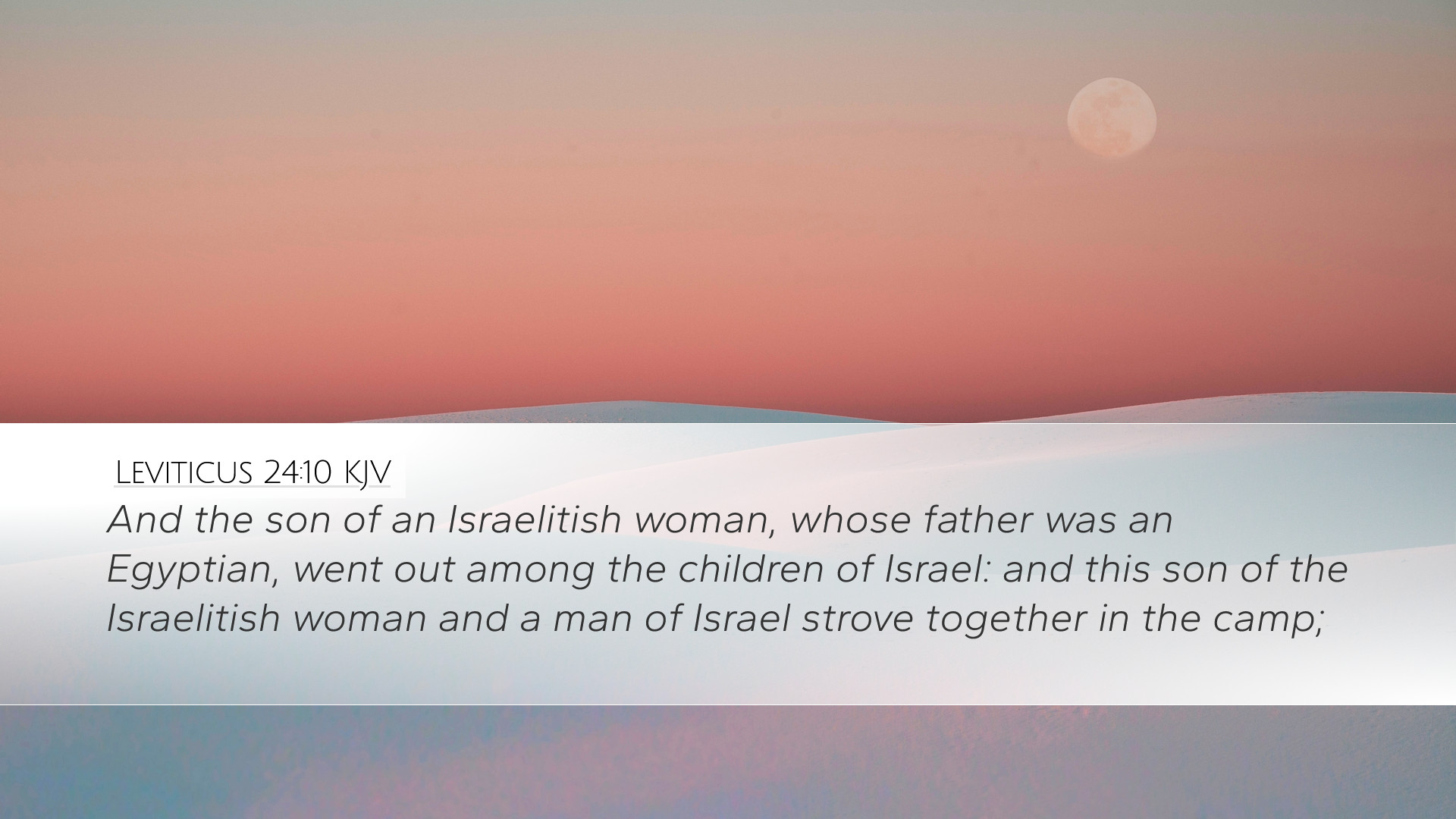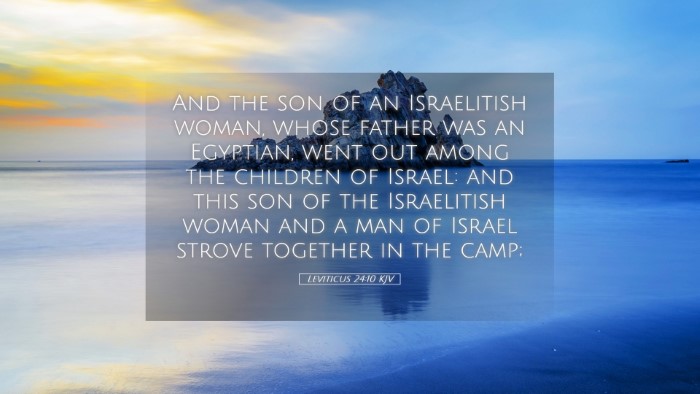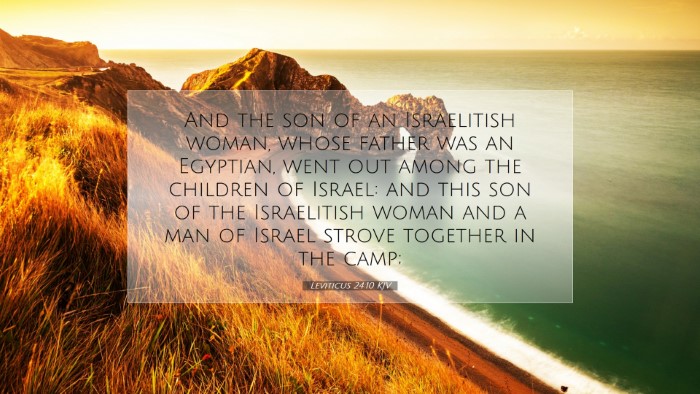Commentary on Leviticus 24:10
Verse Context: Leviticus 24:10 states, "And the son of an Israelitish woman, whose father was an Egyptian, went out among the children of Israel: and this son of the Israelitish woman and a man of Israel strove together in the camp."
This verse presents a scenario involving dispute and conflict within the community of Israel, which requires us to explore the implications of identity, community dynamics, and divine law.
Historical and Cultural Context
Matthew Henry's Perspective: Matthew Henry emphasizes the significance of the mixed heritage of the individual described in the verse. The man is noteworthy because he embodies a convergence of cultures—a son of an Israelite woman and an Egyptian father. This mixed lineage brings forth considerations of identity and belonging, particularly within the parameters of a community guided by divine laws.
Henry notes the sociocultural tensions that may arise from such mixed backgrounds, particularly within a community struggling to maintain its unique identity after the Exodus. These tensions remind us that issues of race and heritage have long-standing implications within communal and religious contexts.
Legal Implications and Significance
Albert Barnes' Commentary: In his notes on the law provided in Leviticus, Barnes discusses the broader implications of the conflict that arises from this encounter. The incident of strife highlights the importance of maintaining order within the community, as the laws given to Israel were intended to establish a moral and social framework.
- Divine Law & Social Order: Barnes argues that the disputes among the people illustrate a deeper need for adherence to the covenant God established. The struggle serves as a reminder that societal cohesion is predicated upon compliance with God's statutes.
- Tensions Within Community: The text reveals inherent tensions that can exist when individuals feel marginalized or perhaps act outside the established laws. The response to such incidents is laden with expectations, as the community is called to a higher standard of conduct.
Theological Implications
Adam Clarke's Insight: Adam Clarke provides a theological examination of the individual in question, suggesting that his mixed heritage may symbolize the broader inclusion of different peoples into the covenant community of God. He points out that while God selected Israel as His chosen people, the inclusion of non-Israelites serves as a foreshadowing of the eventual opening of God's kingdom to all nations through Christ.
Clarke emphasizes the notion that God's law transcends ethnic boundaries, suggesting that conduct within the faith community should reflect an understanding of divine grace—leveraging inclusion rather than exclusion:
- Inclusive Community: The New Testament echoes this sentiment in Galatians where Paul declares that in Christ, there is neither Jew nor Gentile. Clarke helps us see how these themes of belonging and identity are woven throughout Scripture.
- Justice and Cultural Sensitivity: It’s crucial that leaders within the Church today recognize the complexities of cultural identity and justice when addressing conflicts, guided by the overarching principle of love as articulated in the New Testament.
Application to Modern Faith Communities
Reflecting on Leviticus 24:10, pastors and church leaders are called to consider how the underlying themes of identity, conflict resolution, and inclusion resonate today:
- Community Cohesion: The story urges modern faith communities to cultivate environments that prioritize reconciliation and understanding, particularly among diverse groups. Societal divisions often echo the historical tensions seen in Scripture.
- Handling Disputes: The text reinforces the need for guidelines and processes that promote fair resolutions in conflicts, ensuring all voices are heard and respected—creating pathways for mediation instead of division.
- Grace and Inclusion: The challenge remains to reflect God’s grace in the church, inviting individuals from all backgrounds. Recognizing the value of diversity enriches the community and strengthens the witness of the Church as the body of Christ.
Conclusion
Leviticus 24:10 serves as a compelling narrative prompting examination of identity, societal order, and divine justice. From the insights provided by Matthew Henry, Albert Barnes, and Adam Clarke, one can see how ancient texts still resonate with contemporary challenges faced in faith communities today.
As we navigate our own cultural complexities and conflicts, this verse encourages us to rely on God’s guidance, ensuring that we embody His principles of love, justice, and inclusivity within our congregations. Thus, it becomes critical for all believers to learn from this passage, applying its lessons to cultivate a community reflective of God’s heart for unity amidst diversity.


